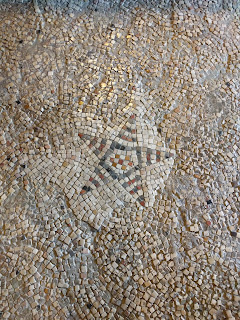Epifania / Epiphany + See No Stranger / No veas un extranjero + 1.6.22
M. Campbell-Langdell
All Santos, Oxnard
Epifania/ Epiphany 2022
(Isaiah
60:1-6 / Isaias; Psalm
72:1-7,10-14/ Salmo; Ephesians
3:1-12/ Efesios; Matthew
2:1-12/ Mateo)
“In the beginning, there was wonder. En el inicio,
había el asombro. Out in
the country, far from the city lights, the night air was clear enough to gaze
into the long shimmering galaxy that stretched across the sky. Me
gustaría quedar en el campo detrás de la casa de mi familia y hablar con las
estrellas como si fueran mis amigos, justo como hable con las vacas detrás del
cerco o los caballos en el otro lado de la calle. Once, while playing in a stream, I
saw a butterfly dancing over the water and put out my finger and asked it to
come to me—and the butterfly came. La mariposa quedaba en mi dedo
por un largo tiempo, tan largo tiempo que yo quede mirando sus alas, alabando
sus colores antes de que huyo volando. Back then, there was no question: The earth under me, the
stars above me, the animals around me, were all part of me. And wonder was my
first orientation to them all. El asombro fue mi primera orientación
a todo el mundo, la cosa que me conectaba con ellos-you are a part of me I do
not yet know.”[1]
Así empieza su libro See No Stranger / en
español: No veas un extranjero por Valarie Kaur, un activista y abogado que
es norteamericana y sikh. With apologies for my clumsy translation, thus is a bilingual version of
how Valarie Kaur’s book See No Stranger
begins. And these two concepts of wonder- wonder in the universe, and that of
seeing no stranger in each other, are what drive my reading of today’s
scriptures, particularly the gospel reading. Cuando y oleo
las escrituras de hoy, pienso en el asombro del mundo y también en no ver un
extranjero.
Because this story is one of wonder- star of wonder! The wise
men, or Kings, or however you see them, journey toward Jesus drawn by the
astrological science of their times, and wonder! Los reyes
magos estaban guiado en su camino por las estrellas y por el asombro de aquella
estrella de tanto fulgor. That star that shone so bright guided their way and showed them the path.
Aquella estrella brillante guio a los reyes magos donde estaba Jesús, José
y María. Guided them to
Mary, Joseph and Jesus. How can we reconnect with the wonder of simply gazing
at the stars and looking for God’s guidance, remembering that we are each a
tiny but important part of this amazing creation? ¿Como Podemos
nosotros mirar hacia los cielos y recordar que somos solo una pequeña parte de
esta asombrosa creación, y buscar nuestro guía en Dios?
Later in her book, Valarie Kaur says: “When we choose to
wonder about people we don’t know, when we imagine their lives and listen for
their stories, we begin to expand the circle of those we see as part of us. We
prepare ourselves to love beyond what evolution requires.” And this, too, makes
me think of the wise men. In Mary, Joseph and Jesus they encountered people
wholly different from themselves- in background and education. And yet they
became the righteous pagans- the ones who would see the truth in Jesus before
others would because they refused to see him as a stranger.
Mas tarde en su libro, Valarie Kaur dice: “Cuando elegimos pensar con
asombro sobre las personas quienes no conocemos, cuando imaginemos sus vidas y
buscamos sus historias, empezamos a expandir el circulo de los que vemos como
una parte de nosotros. Nos preparamos para amar más allá de lo que la evolución
requiere (Mi traducción).” Y esto es lo que hicieron los reyes magos, los
sabios del oriente. Ellos vinieron, guiados por la estrella a este encuentro
con Jesús, José y María y en ellos no vieron extranjeros. A partir de sus
diferencias de trasfondo, de educación y religión, ellos vieron la verdad en Jesús.
Fueron unos paganos rectos, los que vieron la salvación que Jesús trajo al
mundo antes de los demás.
And so, for us, this is the good news and the challenge of
Epiphany. How can we look at others and see no stranger? How can we listen for
God’s guidance and take in the wonder of creation while doing so? So that we,
too, can learn to love beyond what evolution requires?
Esta es la buena nueva y a la vez el desafío del día de la Epifanía. ¿Como
podemos mirar a los demás y no ver unos extranjeros? ¿Como podemos buscar el
guía de Dios y ver el asombro de su creación a la vez? Para que nosotros
también podemos amar más allá de lo que la evolución requiere.




Comments
Post a Comment